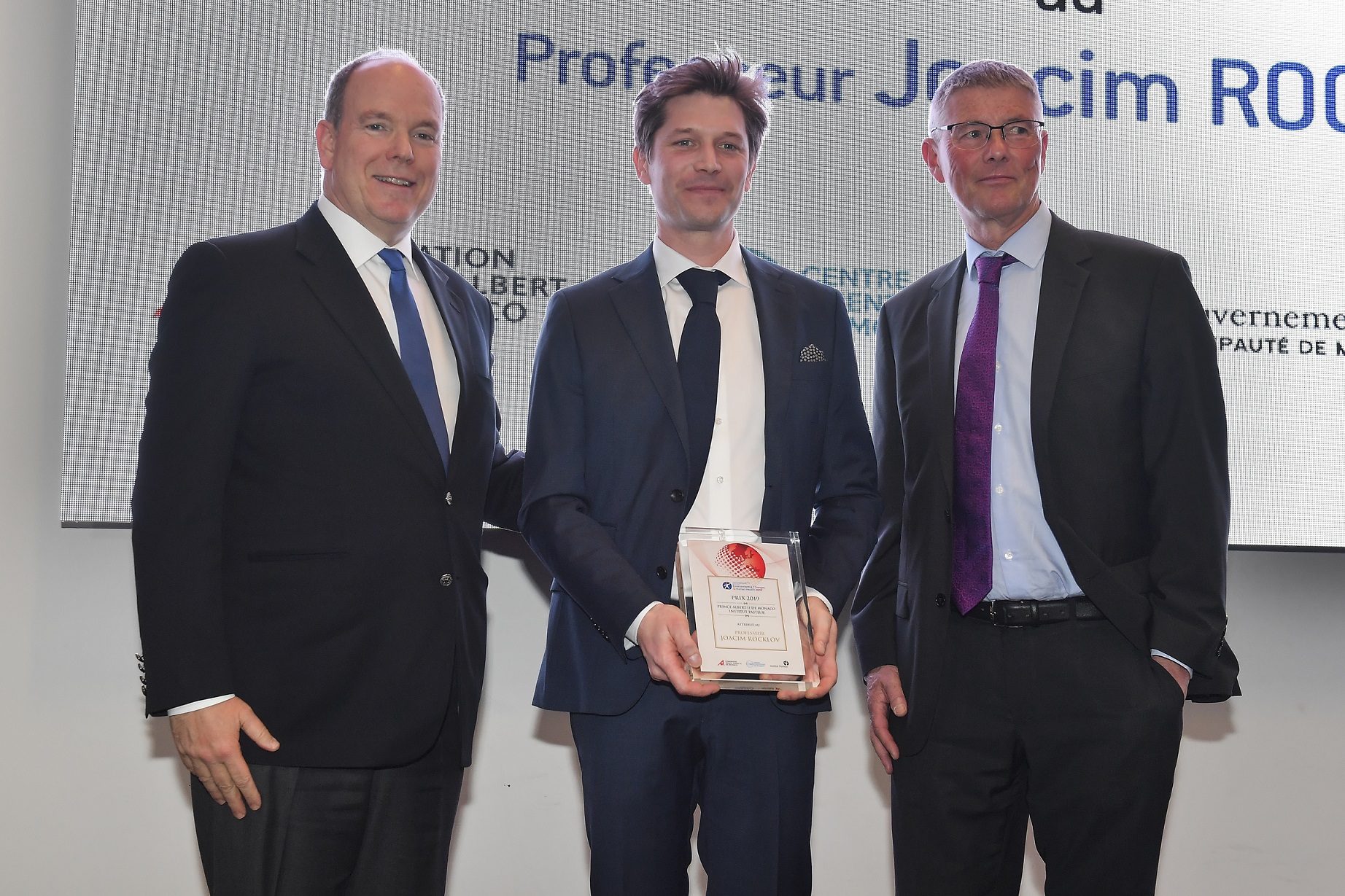
 International
International
Award ceremony for the 2019 Prince Albert II of Monaco–Institut Pasteur Prize
The Prince Albert II of Monaco–Institut Pasteur Prize has been awarded for the past nine years to a scientist that has made a significant contribution to research into the impact of environmental changes on human health.
Funded by the Government of the Principality of Monaco, this prize was introduced in connection with the partnership agreement concluded between the Scientific Center of Monaco, the Prince Albert II of Monaco Foundation and the Institut Pasteur in 2010 to investigate the consequences of environmental changes on human health. It was set up under the framework agreement signed by the parties on December 21, 2010, which provides for the funding of joint projects to combat emerging diseases, for access to training for scientists and healthcare professionals in the least developed countries, and for the organization of scientific or charity events related to environmental protection.
On Thursday March 28, during Monaco Ocean Week, at a ceremony attended by Stewart Cole, President of the Institut Pasteur, Jennifer Heurley, acting Vice-President International Affairs, and Dominique Franco, Education advisor and Head of the Pasteur MOOC Team, the Prince of Monaco awarded the 2019 Prince Albert II of Monaco–Institut Pasteur Prize to Professor Joacim Rocklöv for his research on climate-related arboviral disease outbreaks.
Joacim Rocklöv is a Swedish epidemiology professor in the Sustainable Health Section of the Public Health and Clinical Medicine Department within the Umea University Faculty of Medicine, and an Associate Researcher in the Heidelberg Institute of Global Health (HIGH) at the University of Heidelberg. His research focuses on arboviral diseases, especially the epidemiology of the Zika and dengue viruses. Drawing on his expertise in statistics, he developed a predictive mathematical model for dengue outbreaks based on the dynamics of the Aedes Aegypti mosquito, with the aim of introducing early warning systems.
Joacim Rocklöv is also involved in interdisciplinary public health activities with health and climate scientists, economists and political decision-makers, and he was invited to join the Lancet Countdown group of experts as a specialist in vector-borne diseases. He has contributed to reports by the Intergovernmental Panel on Climate Change and the World Health Organization (WHO).
